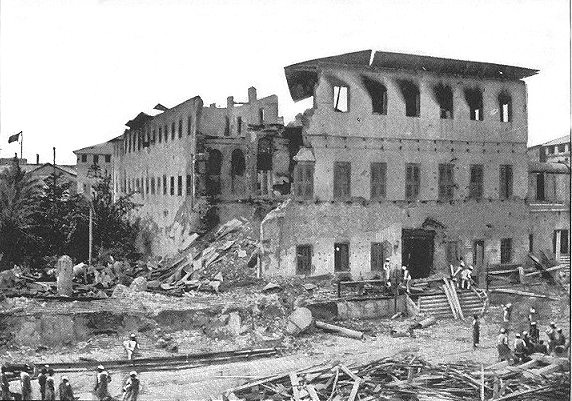The shortest war in history: The Anglo-Zanzibar War of 1896
Historian article

At 9am on 27 August 1896, following an ultimatum, five ships of the Royal Navy began a bombardment of the Royal Palace and Harem in Zanzibar. Thirty-eight, or 40, or 43 minutes later, depending on which source you believe, the bombardment stopped when the white flag of surrender was raised over what was left of the palace. Over 500 defenders died, compared to one British marine who was injured. Thus ended what is widely regarded as the ‘shortest war in history.'
The immediate cause of the war was the death of the Sultan of Zanzibar, Hamad bin Thuwaini on the 25 August. His nephew, Khalid bin Bargash, seized power, but he was regarded by the British as far too independent. They preferred Hamud bin Muhammed. In the best tradition of gunboat diplomacy, an ultimatum was issued at 8am, giving Khalid an hour to surrender and leave the palace. When the ultimatum expired the bombardment began, and a force of marines was landed on the shore. As the shells landed, Khalid bin Bargash fled the palace seeking safety in the German consulate, from which he was quickly and in secret shipped out of the country. Order was restored and Britain's preferred ruler Hamud bin Muhammed was installed as Sultan of Zanzibar where he ruled, with British assistance, until his death in 1902. This is just another successful example of Britain getting its way and making sure the ‘informal empire' worked in Britain's interests rather than, in this case, the interests of the Zanzibar ruler...
This resource is FREE for Historian HA Members.
Non HA Members can get instant access for £2.49

